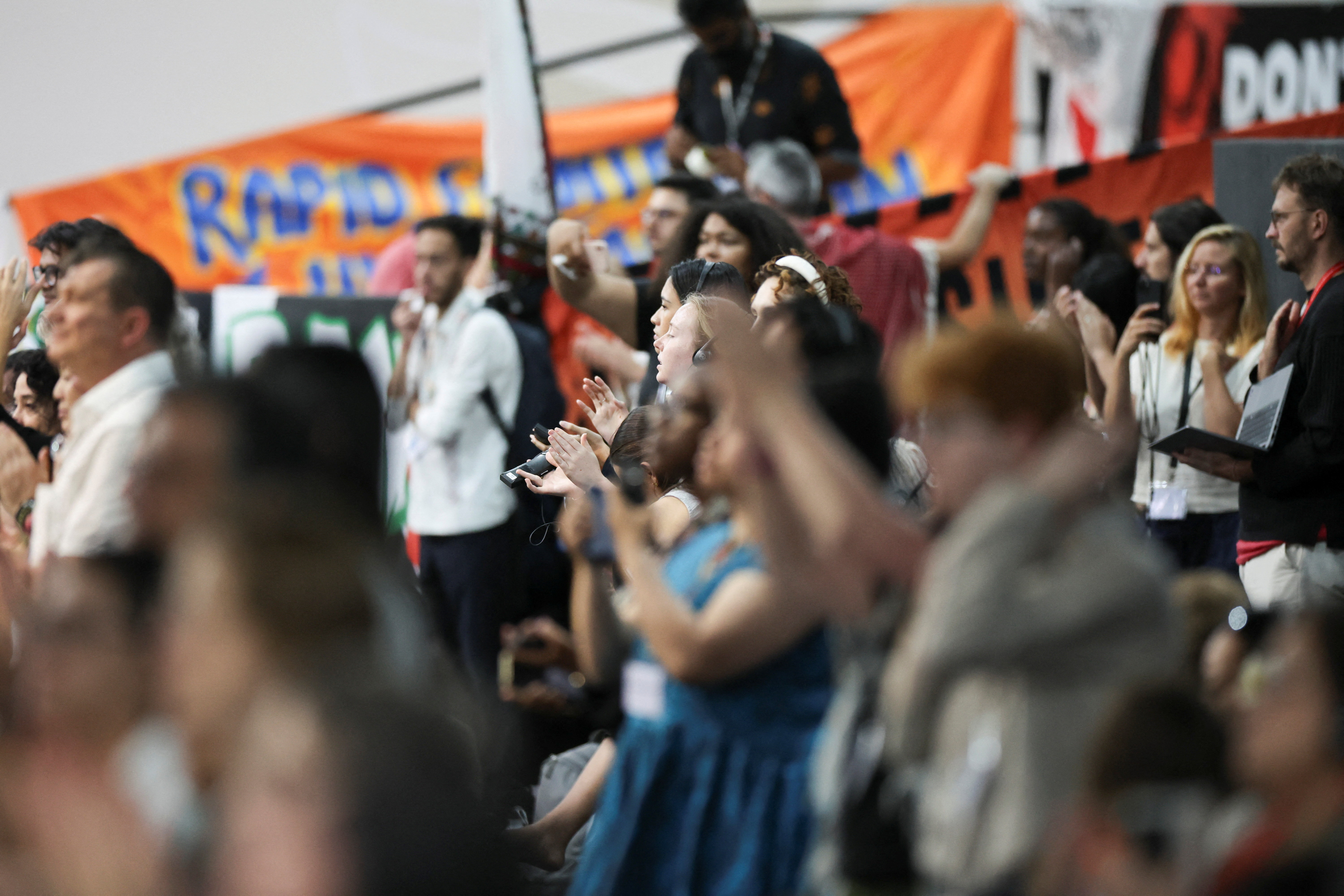The host of the COP30 conference in Brazil urged countries to unite for a deal to strengthen international climate efforts on Friday, as a showdown loomed in the summit’s final hours over whether the accord should set the world on a clearer path away from fossil fuels.
“This cannot be an agenda that divides us,” COP30 President André Corrêa do Lago told delegates in a public plenary session before releasing them for further negotiations.
“We must reach an agreement between us.”
The rift over the future of oil, gas and coal underscored the difficulties of landing a consensus agreement at the annual conference, which serves as a perennial test of global resolve to avert the worst impacts of global warming.
A draft text for a deal, released by summit host Brazil before dawn, contained no reference to fossil fuels, dropping entirely a range of options on the subject that had been included in an earlier version.
Scores of countries, including major oil and gas producer nations, had called the options unacceptable, while some 80 governments had come out in support of them.
The burning of fossil fuels emits greenhouse gases that are by far the largest contributors to global warming.
STANDOFF OVER FUTURE OF FOSSIL FUELS
That standoff between the two groups continued on Friday, leaving the talks deadlocked for now.
Panama negotiator Juan Carlos Monterrey told a press conference on Friday morning that leaving fossil fuels out of the COP30 deal risked turning the talks into a “clown show”.
“Failing to name the causes of the climate crisis is not compromise. It is denial,” he said.
Three sources said the Arab Group negotiating bloc, whose 22 members include Saudi Arabia and the United Arab Emirates, told a closed-doors meeting where nations were attempting to thrash out a compromise that its energy industries were off limits in discussions.
In a statement delivered by Saudi Arabia,the group warned that targeting its industries would collapse the negotiations, the sources said.
Saudi Arabia did not immediately reply to a request for comment addressed to the Saudi government communications office.
The two-week conference in the Amazon city of Belem had been scheduled to end at 6pm local time (9pm GMT) on Friday but, like previous COP summits, looked set to blow past that deadline and continue late into the night.
A deal text would need approval by consensus among the nearly 200 countries present in order to be adopted.
The United States has declined to send an official delegation this year under President Donald Trump, who has called global warming a hoax.
Corrêa do Lago said the exit of the world’s largest economy meant uniting around COP30 was crucial to ensure the multilateral process survives.
“The world is watching,” he said.
FOSSIL FUEL FOCUS
Dozens of nations have been pushing hard for a “roadmap” laying out how countries should follow through with a promise made at COP28 two years ago to move away from oil, gas and coal.
The European Union’s commissioner for climate, Wopke Hoekstra, said in a statement delivered during consultations on Friday that the issue was important for building on past commitments to slash emissions.
“We need to make sure that the shift from fossil fuels to clean energy is real and in the text,” he said.
A Brazilian negotiator told Reuters the fossil fuel language was unlikely to be reintroduced, and that the summit presidency was pressing for only small adjustments to the existing draft.
Other negotiators indicated that compromises to strengthen the deal’s commitments to step up emissions-cutting action were possible, particularly if wealthy countries could commit to provide more climate finance to help developing countries with the green transition.
CLIMATE FINANCE AND TRADE
The draft called for global efforts to triple the financing available to help nations adapt to climate change by 2030, from 2025 levels.
However, it did not specify whether this money would be provided directly by wealthy nations, or other sources including development banks or the private sector.
That may disappoint poorer nations that want stronger guarantees that public money will be spent on this area.
Investments in adaptation – such as improving infrastructure to cope with extreme heat, or reinforcing buildings against worsening storms – are often vital for saving lives but offer little financial return, making it difficult for such investments to attract private finance.
The draft deal would also launch a “dialogue” on trade at upcoming UN climate talks, involving governments and other actors like the World Trade Organisation.
That would be a win for countries including China that have long demanded that trade concerns be part of the world’s climate summit.
But it may be uncomfortable for the European Union, as demands for such discussions have often focused on the EU carbon border levy, which has faced criticism from emerging markets including India, China and South Africa.






Click here to change your cookie preferences